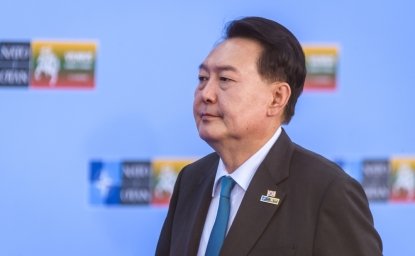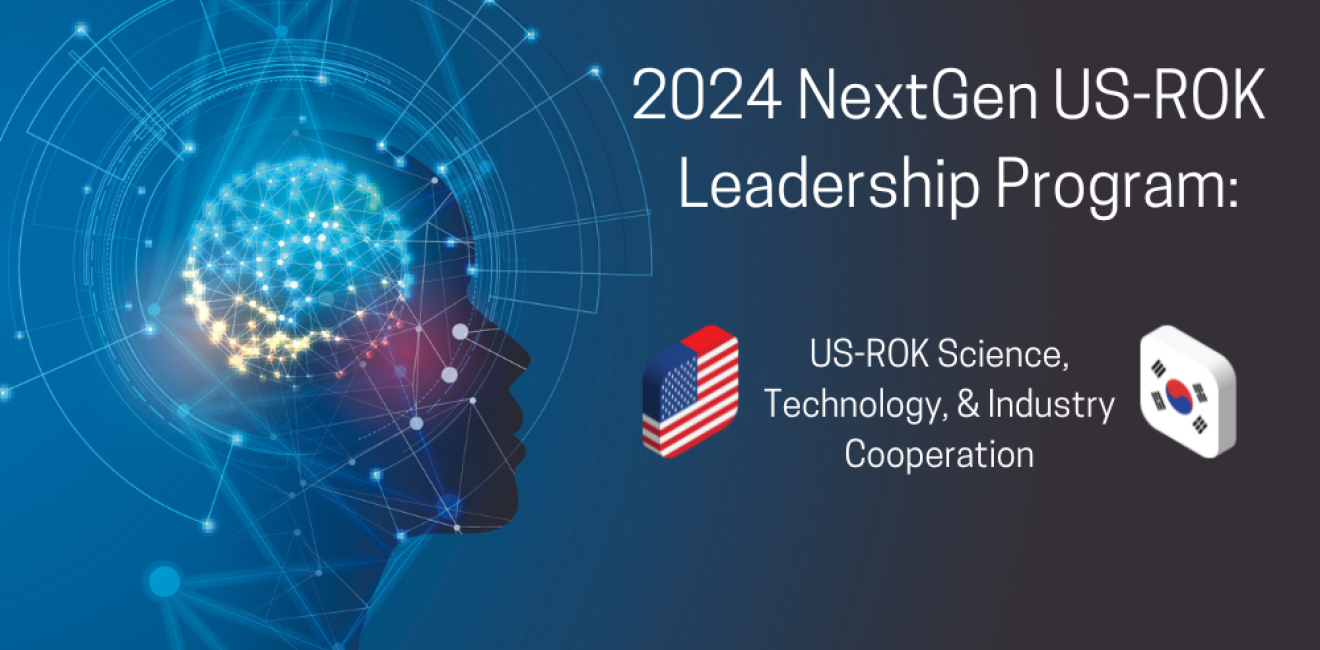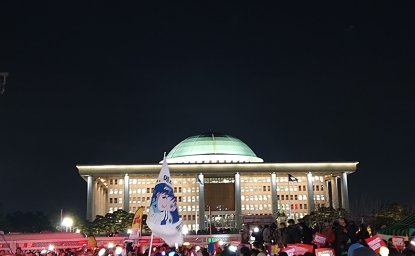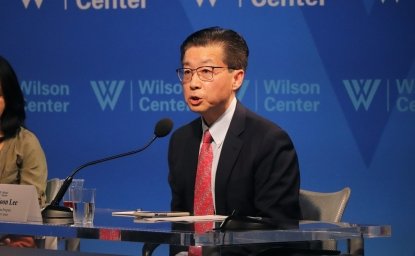WASHINGTON - The Wilson Center’s Korea Center is pleased to announce the members of the 2024 NextGen US-ROK Leadership program, a workshop series that provides participants with capacity-building and leadership opportunities in critical areas of expanding cooperation within US-ROK relations.
Program Background
The US-ROK alliance plays an increasingly important role in US foreign policy towards the Indo-Pacific. Since the 1950s, relations between the United States and South Korea have grown, adapted, and strengthened. As the two countries look to the next 70 years of the alliance, the 2024 NextGen US-ROK Leadership program provides participants with capacity-building and leadership opportunities in critical areas of expanding cooperation (and competition) within US-ROK relations.
Going beyond traditional security, the program features a workshop series with expert presentations and discussion on areas of critical importance in US and South Korean foreign policy to broaden understanding in science, technology, and industry relations. Workshop topics to be covered include (1) Cybersecurity & Digital Economy, (2) Climate Change & Energy Security, (3) Supply Chain & Trade Cooperation, and (4) Space Defense & Industry.
2024 NextGen US-ROK Leaders Cohort
The 2024 class of nearly 30 NextGen US-ROK Leadership participants includes current students, recent graduates, and early career professionals with an interest in US-ROK foreign policy and Indo-Pacific regional expertise. Participants will attend workshops with policy experts for discussions of areas of critical importance to US and South Korean foreign policy, including cybersecurity, climate change and energy security, supply chain and trade cooperation, and space defense and industry.
We are delighted to welcome the 2024 Class of NextGen Participants listed below.
- Shubhankar Agarwal, M.A. in International Relations, American University.
- Chelsie Alexandre, Policy Program Officer, The Korea Society.
- Sevde Arpaci Ayhan, Postdoctoral Fellow, American University.
- Aaron Chan, Presidential Appointee, Federal Emergency Mangement Agency.
- Vivian Chen, International Environmental Program Specialist, U.S. Environmental Protection Agency.
- Sierra Cougot, Assistant Correspondent, Kyodo News.
- Vanessa Crawford, International Relations Program Officer, The Asia Foundation.
- Alexander Eid, Associate, The Asia Group.
- Oscar Escobar, M.S. in Foreign Service, Georgetown University.
- Ihechiluru Ezuruonye, Policy Analyst, U.S. Department of Homeland Security
- Hanna Foreman, Senior Research Assistant, Brookings Institution.
- Jocilyn Gilbert, (former) Legislative Director, Office of Rep. Henry C. Johnson.
- Frank Hoffman, M.A. in Asian Studies, Georgetown University.
- Andy Hong, Program Officer, Korea Economic Institute.
- Carol Kim, Associate Attorney, White & Case LLP.
- Christina Lee, Associate, Beacon Global Strategies.
- Dong Jin (Steven) Lim, J.D. Candidate, Syracuse University.
- David Park, International Affairs Specialist, U.S. Department of Justice.
- Justin Rhee, Professional Staff Member, U.S. House of Representatives Committee on Natural Resources.
- Salwa Saba, Korea Desk Officer, U.S. Department of Commerce.
- Daniel Schoolenberg, Associate Researcher, Taejae Future Consensus Institute.
- Miranda Sieg, Export Compliance Specialist, U.S. Department of Commerce.
- Lia Stefanovich, Policy Analyst, U.S. Congressional Joint Economic Committee.
- Joseph Stevens, Presidential Management Fellow, U.S. Department of State.
- Joshua Stone, Program Coordinator, German Marshall Fund of the United States.
- Lauren Sung, Senior Data Solutions Analyst, Strider Technologies.
- Raveena Ugale, Program Manager, GW Institute for Korean Studies.
- Emma Whitmyer, Program Officer, Asia Society Policy Institute.
- Liana Wong, International Trade and Finance Analyst, Congressional Research Service.
The 2024 NextGen US-ROK Leadership program is hosted by the Hyundai Motor-Korea Foundation Center for Korean History and Public Policy and supported by the Korea Foundation. For more information about the Korea Center, please visit the program’s website.

Hyundai Motor-Korea Foundation Center for Korean History and Public Policy
The Center for Korean History and Public Policy was established in 2015 with the generous support of the Hyundai Motor Company and the Korea Foundation to provide a coherent, long-term platform for improving historical understanding of Korea and informing the public policy debate on the Korean peninsula in the United States and beyond. Read more

Explore More
Browse Insights & Analysis



